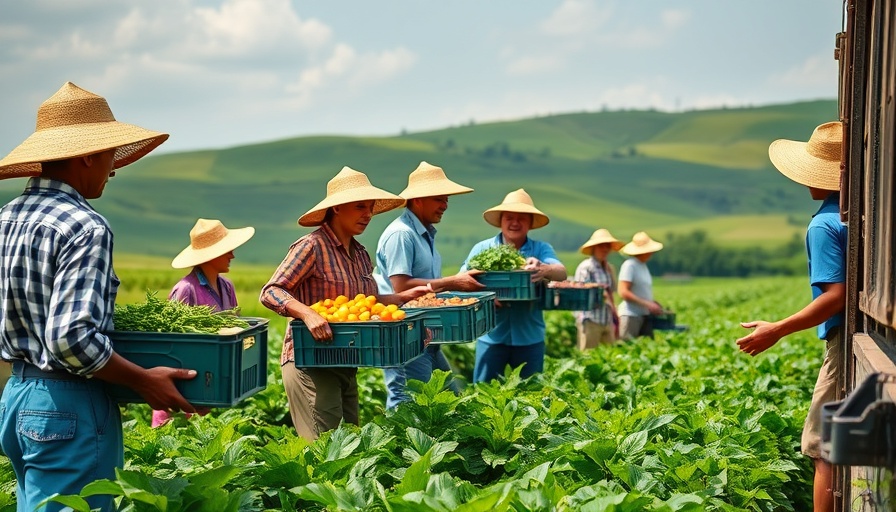
Understanding the Impact of Trump's Immigration Policy Changes
In a surprising move, President Trump's administration has announced significant curbs on immigration enforcement at key industries across the country, particularly in farms, meatpacking plants, hotels, and restaurants. This pivot raises several questions regarding the economic and social implications of less stringent immigration laws at a time of heightened scrutiny around immigration practices nationwide.
The Context Behind Immigration Enforcement
Immigration enforcement has been a hot-button issue in U.S. politics, especially in recent years. Prior to these new guidelines, industries dependent on immigrant labor had been the subject of high-profile raids by U.S. Immigration and Customs Enforcement (ICE). The raids often resulted in fear and uncertainty for workers, many of whom had become integral parts of the workforce. This new policy is a marked shift from the aggressive enforcement strategies that characterized the early Trump administration.
Why This Matters to Business Owners
For business owners in agriculture, meatpacking, and hospitality, the curbs in enforcement provide relief and stability. As these industries heavily rely on immigrant labor for their operational success, many are now hopeful this decision can lead to increased labor availability and a more reliable workforce. With staffing shortages a persistent challenge, easing immigration enforcement may allow businesses to fill their ranks more effectively.
Economic Implications of Reduced Raids
Reduced immigration enforcement could have broader economic implications. Industries that rely heavily on immigrant labor contribute significantly to the economy, making up a substantial portion of the labor force in sectors like agriculture and food production. The National Farmers Union has noted that maintaining a reliable workforce directly impacts food supply lines and pricing. Lessening enforcement could mean that workforces can stabilize, thus ensuring better productivity and continuity in production.
Social Perspectives on Immigration Enforcement
From a social standpoint, the easing of immigration raids was met with both relief and skepticism. Advocates for immigrant rights view this as a positive step towards humane treatment, proposing that it reflects a recognition of the contributions immigrants make in various sectors. However, critics argue that without robust enforcement, there are risks of abuse within labor standards, potentially undermining the rights of vulnerable workers and leading to exploitation.
The Balancing Act for National Security
While this slowdown in ICE activity offers practical benefits for businesses and workers, it also reignites the debate on national security versus labor rights. Proponents of strict immigration enforcement often argue that vigilance on immigration policy is crucial to national security. They fear that relaxing immigration standards may present risks for law enforcement that could echo in increased illegal activities. Finding a balance between maintaining security and ensuring fair labor practices will be essential in evaluating the long-term implications of this policy shift.
Future Predictions and Shifting Trends
As industries absorb this change, it is critical to watch how these new policies affecting immigration enforcement unfold over time. Experts suggest we may observe a shift toward a labor force that is more stable but also more cautious. Workers might feel an increased sense of security, but they may still face the challenges of existing xenophobic sentiments and policies that can arise at local levels.
Engaging with Your Community
For individuals and communities, engaging in dialogues about these policy changes is crucial. Understanding the real impacts—both economically and socially—will empower citizens to advocate for their needs and help businesses adapt. Communities can play a critical role in fostering an inclusive environment while also looking after their regional economies.
The recent policy changes surrounding immigration enforcement at farms, meatpacking plants, hotels, and restaurants reflect a complex interplay of economic needs and social dynamics in the United States today. As observers of these changes, it is important to question how these new policies will influence labor markets and the livelihoods of many workers across the country.
 Add Element
Add Element  Add Row
Add Row 



Write A Comment